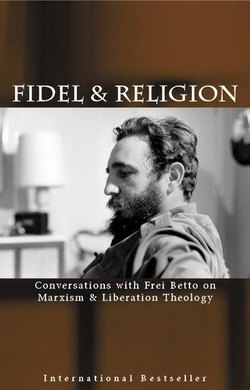Читать книгу Fidel & Religion - Fidel Castro - Страница 19
На сайте Литреса книга снята с продажи.
ОглавлениеTUESDAY, MAY 21, 1985
At 10:30 p.m. the phone rang. It was the comandante’s office, telling me not to go out. At midnight, a small Alfa Romeo driven by a member of the Ministry of the Interior picked me up and took off like a jet, going first along Fifth Avenue and then along Paseo, as if it had been challenged to make all the traffic lights before they turned red.
Fidel Castro welcomed me at his office. Jesús Montané Oropesa, a member of the Central Committee and one of Fidel’s oldest compañeros in the July 26 Movement’s struggle against the Batista dictatorship, was with him. A mild, almost sweet smell of cigars filled the room. I sat down in a leather armchair and, with a lump in my throat, heard the comandante explain that due to the inauguration of the US radio station, which had insulted Cubans by taking the name of José Martí, and also because of other work, it might not be possible to have the interview at that time. I would either have to extend my visit or return in a few weeks. The idea of the full, stifling agenda that awaited me in Brazil passed through my mind.
There was no possibility at all of my staying any longer on the island or of returning in a few months because of serious work engagements. I insisted on taking advantage of the opportunity. He resisted, saying that he wanted to be better prepared for an interview on such a delicate and important topic as religion. Before the interview, he wanted to read Leonardo Boff’s Jesucristo libertador (Jesus Christ the liberator) and Iglesia, carisma y poder (The Church, charisma and power) and the Vatican II and Medellín documents, Spanish-language copies of which lay on top of his desk. He also wanted to study Gustavo Gutiérrez’s works, and he needed a little more time to read the complete texts of the speeches given by John Paul II during his February 1985 tour of Latin America. I wondered how, with his tight work agenda, the Cuban leader could combine the countless tasks of government, his intellectual voracity for the most diverse topics, and the pleasure of talking. I didn’t recall ever meeting another person with such a sharp intelligence and inclination for personal talks. Joelmir had rightly noted and commented to me that Fidel enhanced everything, giving great importance to whatever topic was being discussed, from cooking to the Third World’s foreign debt.
In view of my silent resistance, he requested that I read the questions I wanted to ask him. After hearing the first five, he immediately became interested. Those were the ones related to his personal history and the Christian education he had received. He had probably imagined an endless list of theological questions for which he would require a bibliographic preparation. He asked me to stay at least two more days in Cuba, so we could work better. His main difficulty was that he had to welcome a delegation of Latin American visitors who would arrive that Thursday, but he expressed his willingness to find some time to begin the interview.
